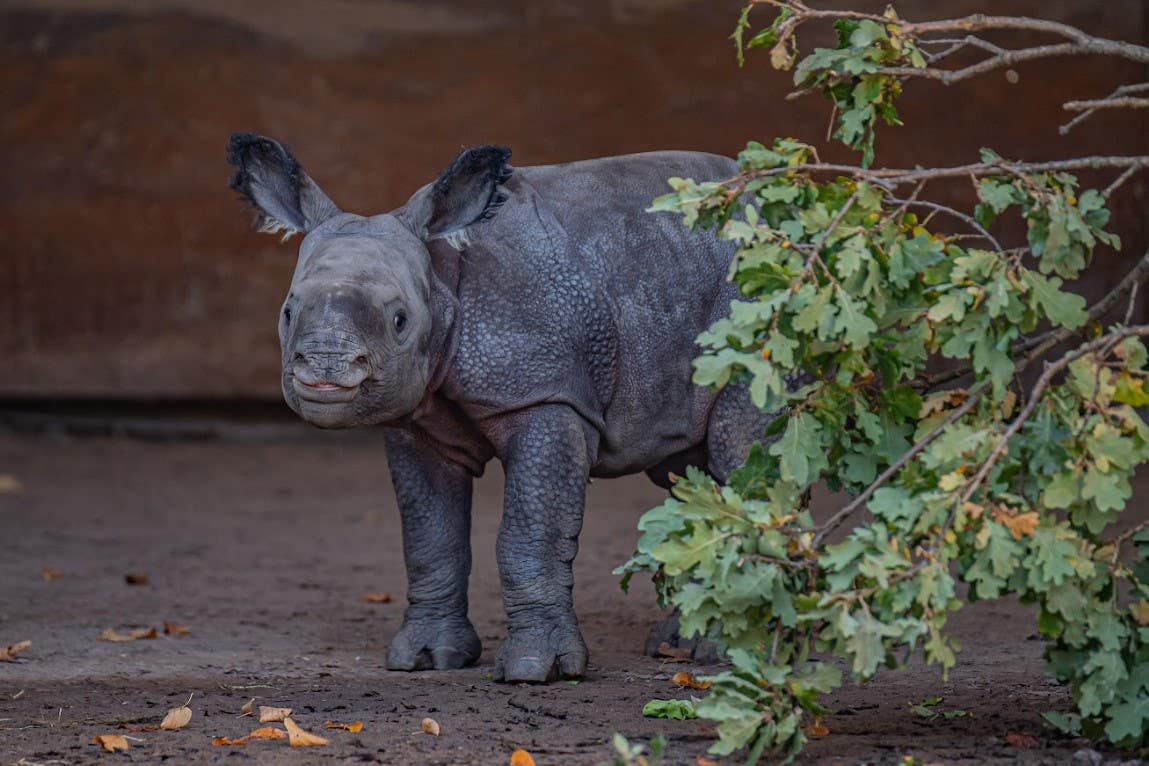Birth of rare greater one-horned rhino calf captured on camera at Chester Zoo
Members of the public have now been invited to vote for the new arrival’s name on the zoo’s Facebook page.

Your support helps us to tell the story
From reproductive rights to climate change to Big Tech, The Independent is on the ground when the story is developing. Whether it's investigating the financials of Elon Musk's pro-Trump PAC or producing our latest documentary, 'The A Word', which shines a light on the American women fighting for reproductive rights, we know how important it is to parse out the facts from the messaging.
At such a critical moment in US history, we need reporters on the ground. Your donation allows us to keep sending journalists to speak to both sides of the story.
The Independent is trusted by Americans across the entire political spectrum. And unlike many other quality news outlets, we choose not to lock Americans out of our reporting and analysis with paywalls. We believe quality journalism should be available to everyone, paid for by those who can afford it.
Your support makes all the difference.Cameras have captured the moment a rare greater one-horned rhino calf was born at Chester Zoo.
The female calf was born on October 14, sharing her parents’ “slightly wrinkled armoured plating” and weighing an “incredible” 50kg (110lb).
Keepers said it was “a true privilege” to see mother Asha give birth after a 16-month pregnancy.
“We’re absolutely thrilled with Asha and her new arrival,” said rhino team manager Sam Harley.
“It’s been four years since a greater one-horned rhino calf was born here at Chester Zoo and they really are an incredible sight.
“Despite their enormous stature, this species has a really soft side.
“Mum and calf have been so relaxed and calm, spending time side by side, bonding together.”
Asha’s pregnancy was tracked by the zoo’s on-site endocrinology lab, which monitors hormones in dung samples to check how a pregnancy is progressing.
Laboratory technician John O’Hanlon said: “We’re the only zoo in the UK to have an on-site endocrinology lab, which allows us to track an animal’s hormones and even its pregnancy.
“Performing an ultrasound with an Indian rhino – and that amazingly thick skin isn’t easy… but by collecting and monitoring weekly samples of Asha’s dung, we’re able to track the pregnancy to see how mum and calf are doing.”
Greater one-horned rhinos can weigh up to 2.4 tonnes and run at speeds of up to 25 miles per hour.
The species is vulnerable to extinction due to poaching and habitat loss, making it “so important” that the zoo continues to work with the rhinos.
Ms Harley added: “Not everyone is lucky enough to see a rhino in the wild, but Asha, dad Beni, and their new calf help our two million visitors a year to connect with this magnificent species.
“At one point, there were less than 200 in the wild so it’s a real privilege to be able to care for this newborn.”
Members of the public can now vote on the zoo’s Facebook page for the name of the calf from three options chosen by keepers.
The shortlisted names are Thuli, which is a river in Nepal; Jiya, the Indian word for sunshine; and Bahula, meaning “star”.